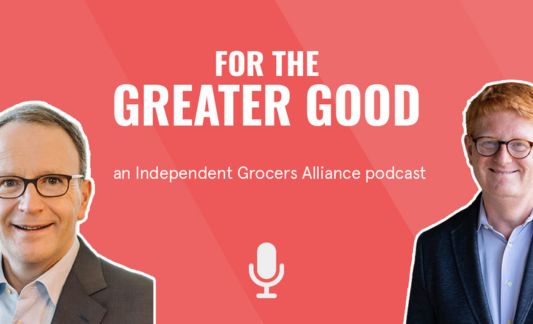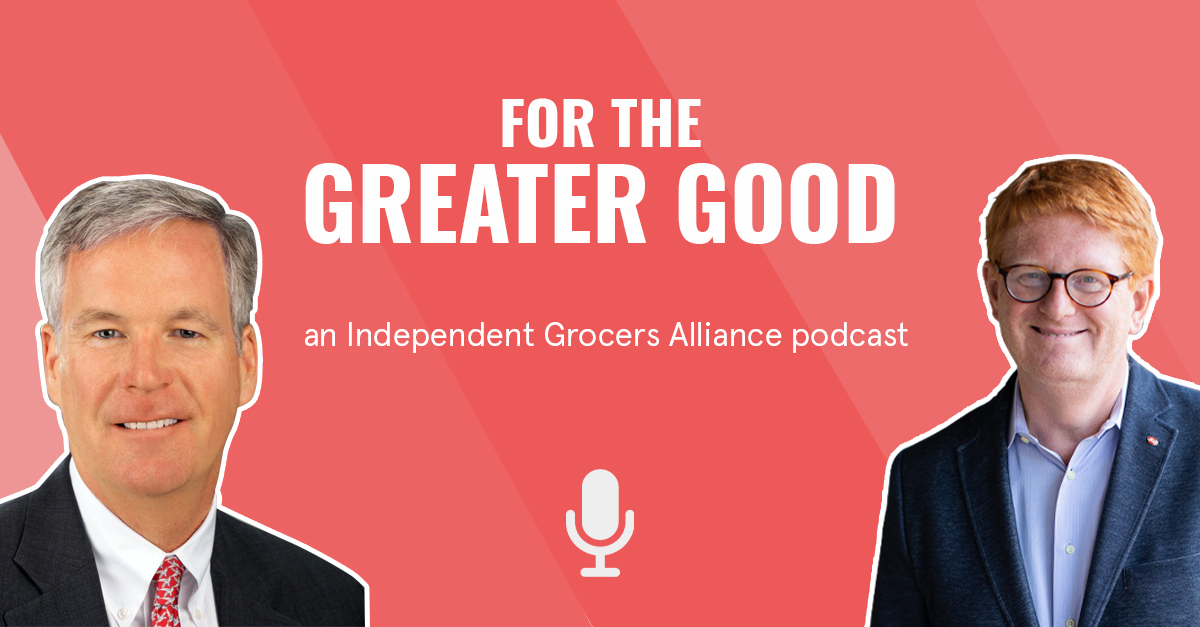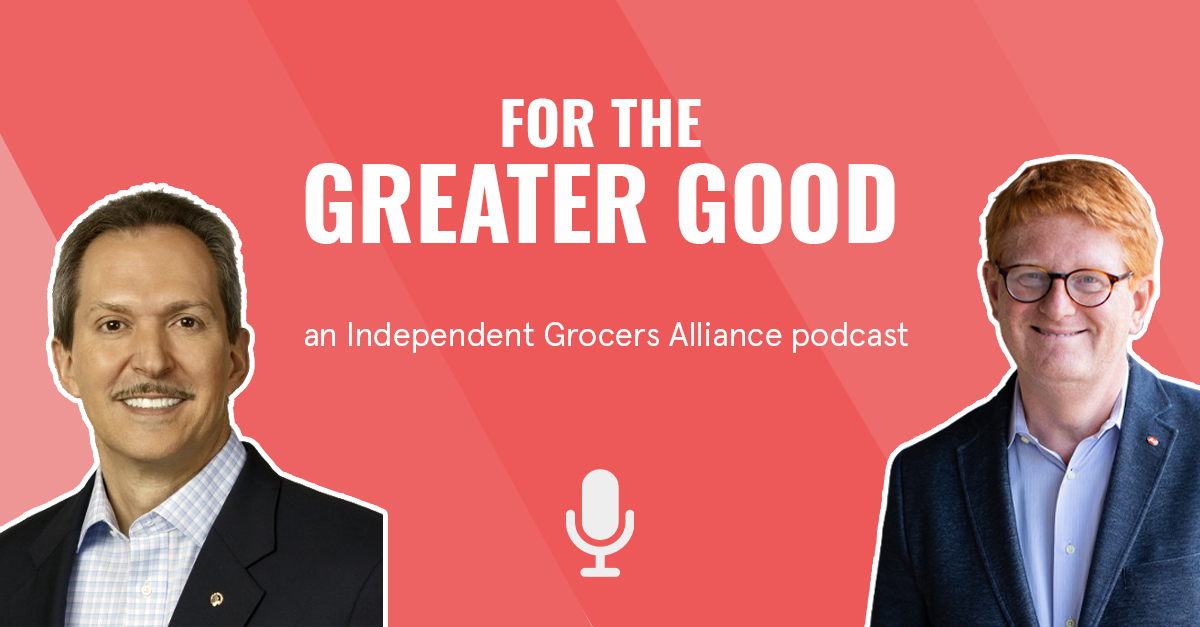Help Isom IGA recover from devasting floods

IGA CEO John Ross recently hosted American Egg Board President and CEO Emily Metz on the podcast, For the Greater Good, for a compelling discussion about the egg industry and its contributions to independent grocers. Ross and Metz explored how various stakeholders in the grocery and agriculture industries work toward sustainability and long-term success. Watch the recording below or listen to it on your favorite podcast service.
Amazon | Apple | Podbean | Spotify
Keep reading for the highlights.
The Role of the American Egg Board
Emily Metz leads the AEB, the marketing arm of the U.S. egg industry. Established over 40 years ago by an act of Congress, the AEB represents egg farmers and works to increase demand for eggs through innovative campaigns and consumer insights. Metz highlighted the importance of long-term demand creation, emphasizing that the AEB’s marketing initiatives, like the recent "Meant to Be Broken" campaign, aim to make eggs more visible and versatile in consumers' lives. This effort not only boosts egg sales but also drives foot traffic and larger basket sizes for grocery retailers.
Innovation in Egg Products
One of the AEB’s key strategies is investing in research and development to create convenient, high-protein egg products that cater to younger consumers who prioritize ease and nutrition. An example is the introduction of egg white wraps — protein-packed, ready-to-eat products designed for on-the-go lifestyles. These innovations not only meet evolving consumer preferences but also provide independent grocers with unique offerings to attract and retain customers.
Challenges Facing the Egg Industry
Despite record-high demand, the egg industry has faced significant challenges in 2024. Highly pathogenic avian influenza (HPAI), or bird flu, has affected 8% of the U.S. laying flock, leading to reduced supply and fluctuating prices. Factors like migratory bird patterns, extreme weather, and even cross-contamination from dairy farms have exacerbated the situation. These challenges have underscored the importance of biosecurity measures and technological advancements, such as AI algorithms and laser systems, to safeguard farms.
Addressing Consumer Concerns
Independent grocers are often on the front lines of customer frustration over rising food prices, including eggs. Ross emphasized the importance of educating both staff and customers to provide context for price fluctuations. Partnerships between retailers and organizations like the AEB can help grocers disseminate accurate information through store signage, talking points, and other resources. Clear communication builds trust and enhances the shopping experience, even during challenging times. The AEB has a multitude of resources for retailers to use in both education and safety, which can be found here.
Sustainability and the Future
The podcast also touched on the broader theme of sustainability in agriculture. Metz expressed optimism about the future, citing farmers' resilience and ingenuity in overcoming challenges. She emphasized that ensuring a sustainable egg supply chain benefits not only farmers but also independent grocers, who rely on predictable volumes and stable prices to maintain profitability. As consumer demand for affordable protein continues to grow, the egg industry is poised for long-term expansion.
Key Takeaways for Independent Grocers
- Leverage Egg Marketing: Campaigns like "Meant to Be Broken" can drive customer engagement and larger basket sizes.
- Stock Innovative Products: Offer new, convenient egg-based products to cater to evolving consumer needs.
- Educate Customers: Use AEB resources to explain price fluctuations and highlight the value of eggs as a versatile, affordable protein.
- Support Sustainability: Partner with suppliers who prioritize sustainable practices, ensuring a stable and resilient supply chain.
By aligning with the insights and innovations discussed in the podcast, independent grocers can strengthen their connection with customers and highlight the value of eggs as a versatile, sustainable, and essential part of a healthy diet while addressing modern consumer preferences.
You May Also Like
These Stories on Podcast
Jul 3, 2023 1:14:52 PM |
2 min read
Feb 22, 2023 4:41:33 PM |
1 min read
Jan 18, 2023 12:11:29 PM |
1 min read



No Comments Yet
Let us know what you think